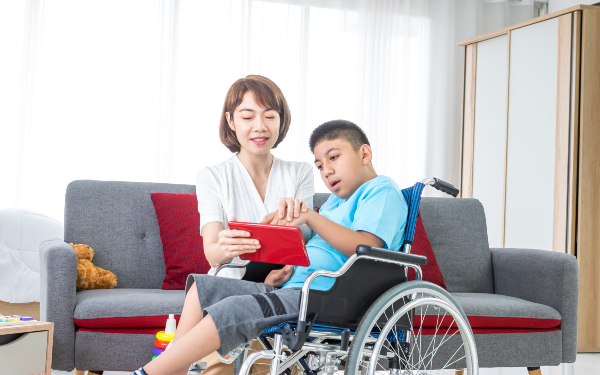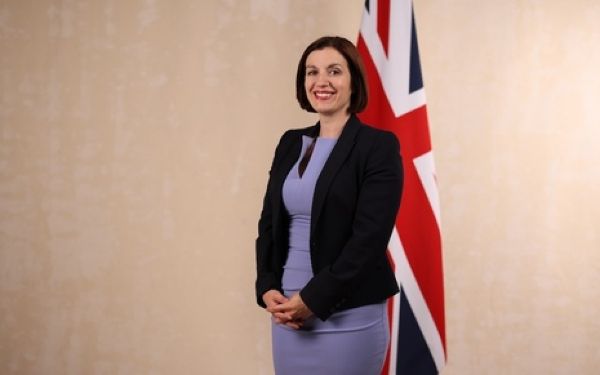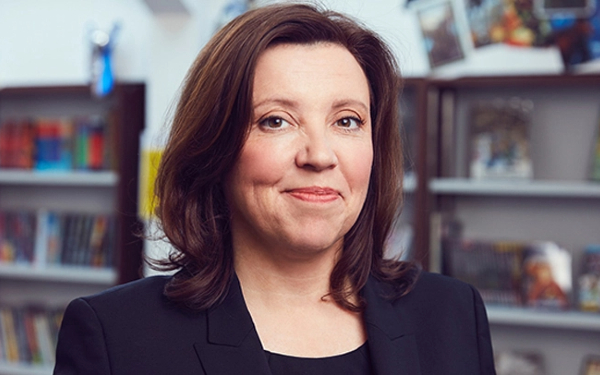
The “door could be open to the abuse and neglect” of disabled children due to the government’s cost-driven decision to shelve a planned expansion of advocacy for the group.
That was the message from the Child Safeguarding Practice Review Panel, as it led sector criticism of the Department for Education’s (DfE) decision to halt the previous government’s planned introduction of requirements to provide non-instructed advocacy to children.
This involves providing representation for children who are unable to instruct an advocate or communicate their views, wishes and feelings because of a disability, mental health issue or medical condition.
Inquiry into abuse of disabled children
Providing disabled children with independently commissioned, non-instructed advocacy from advocates with specialist training was a key recommendation from the panel’s inquiry into the serious abuse of disabled children in three residential services from 2018-21.
Just two of the 108 children whose experience was examined in the review were given access to independent advocacy during their time at the three settings in Doncaster run by the Hesley Group, all of which have now closed.
The then Conservative government accepted in full just two of the panel’s nine recommendations for reforming the safeguarding of disabled children in residential settings, one of those being on advocacy.
Plan to extend advocacy access
This would have been through revisions to national standards and statutory guidance on advocacy for looked-after children, children in need and care leavers, consulted on last year.
These would have introduced a standard requiring that children who were unable to give instructions on a specific issue could access non-instructed advocacy.
The Conservatives did not publish its response to the advocacy consultation, let alone implement the planned changes, before they left power in July last year.
In a letter to the panel providing an update on the government’s response to its safeguarding disabled children review, education secretary Bridget Phillipson said the consultation “highlighted the need to properly fund” any new advocacy standards.
Government shelves policy on cost grounds
She then said the Labour administration could not commit to implementing the panel’s recommendation given its fiscal inheritance from the Tories, whom the independent Office for Budget Responsibility calculated left £9.5bn in undisclosed spending pressures to the new government.

Education secretary Bridget Phillipson (Photo Lauren Hurley / No 10 Downing Street)
“Given the difficult financial landscape our new government has received, extremely difficult decisions are required on where and how our funding is allocated,” wrote Phillipson, in the letter to the panel, published last week.
“We are making investments across the children’s social care sector and further consideration is required on the feasibility of this recommendation within the current budget.”
‘Door could be open to abuse and neglect’
However, panel chair Annie Hudson said the decision was “a concern”.
“Whilst recognising resource constraints, the failure to commit to prioritising advocacy for this group of vulnerable children could leave the door open for abuse and neglect.”
The panel’s concerns were echoed by a host of sector bodies, including the Council for Disabled Children (CDC), whose former strategic director, Christine Lenehan, led the Hesley Group review on behalf of the panel.
Advocacy needed ‘to ensure voices of disabled children are heard’
“For too many children and young people growing up in a placement far from home, life can be like imprisonment, with little contact with their home communities and loved ones,” said CDC director Amanda Allard.
“Due to the extent of their disabilities and health needs, their cries for help can be easily dismissed when they are subjected to abuse.
“Whilst we understand the difficult financial landscape, we urge the government to prioritise the creation of new advocacy standards to ensure the voices of disabled children and young people with complex needs are heard and acted upon by the professionals responsible for their welfare. This measure is a vital element of the response to the Hesley review.”
Coram Voice, which provides children’s advocacy, described the DfE’s decision as “very disappointing”.
Existing advocacy standards ‘woefully out of date’
Linda Briheim-Crookall, Head of Policy and Practice Development at Coram Voice:
“Existing standards and guidance on advocacy are woefully out of date, and it is essential that the government urgently takes action to update the framework,” said its head of policy and practice development, Linda Briheim-Crookall.
“The current lack of clarity around what should be available to whom means that too many children are not supported to have their voices heard. Without fixing this issue we will continue to see children failed by the system.”
Fellow provider the National Youth Advocacy Service (NYAS) also joined the criticism.
Government ‘must urgently reconsider decision’
NYAS Group chief executive Rita Waters said: “Non-instructed advocacy is vitally important for children and young people who face additional challenges in communicating their views, wishes and feelings.
“This is something that must be equally accessible for every child or young person who requires it, and not prevented because of budgetary reasons. We urgently call on the UK Government to reconsider their decision and make a commitment to accepting the panel’s recommendation in full.”
And children’s rights charity Article 39 described the decision as “unforgivable”, while highlighting the lack of specific plans in the DfE’s wider social care strategy to ensure the voices of children and young people are heard.
Commissioner’s call for non-instructed advocacy to be available
The DfE’s decision also comes despite Children’s Commissioner for England Rachel de Souza recommending that looked-after children deprived of their liberty should have access to advocacy, including non-instructed advocacy, where appropriate, in a recent report.
While not criticising the decision, de Souza stressed the importance of advocacy provision for disabled children in particular.

Children’s Commissioner for England Rachel de Souza (credit: Office of the Children’s Commissioner)
“When advocacy works well it can keep children safe and improve the care they receive,” she said. “This is especially true for disabled children, who may face additional barriers to having their voices heard and their needs met.
“It is crucial that advocacy services are inclusive and tailored to the unique circumstances of every child, ensuring that no child is left behind. I will continue to use my role to ensure all children’s voices are heard.”






 Bournemouth, Christchurch and Poole
Bournemouth, Christchurch and Poole  Hampshire County Council
Hampshire County Council  Oxfordshire County Council
Oxfordshire County Council  South Gloucestershire Council
South Gloucestershire Council  Wokingham Borough Council
Wokingham Borough Council  Webinar: building a practice framework with the influence of practitioner voice
Webinar: building a practice framework with the influence of practitioner voice  ‘They don’t have to retell their story’: building long-lasting relationships with children and young people
‘They don’t have to retell their story’: building long-lasting relationships with children and young people  Podcast: returning to social work after becoming a first-time parent
Podcast: returning to social work after becoming a first-time parent  How managers are inspiring social workers to progress in their careers
How managers are inspiring social workers to progress in their careers  Workforce Insights – showcasing a selection of the sector’s top recruiters
Workforce Insights – showcasing a selection of the sector’s top recruiters 

 Facebook
Facebook X
X LinkedIn
LinkedIn Instagram
Instagram
Comments are closed.